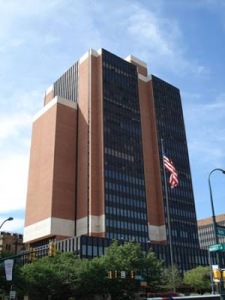
Philadelphia, PA
With those words the Third Circuit rules that removal to federal court does not cure jurisdictional defects or waive any other defenses available in state court. Danziger & DeLlamo, LLP v. Morgan Verkamp, LLP, (January 15, 2020) is a battle between two law firms over a purported referral fee worth millions of dollars. Morgan Verkamp, an Ohio firm, succeeded in a qui tam action in Pennsylvania federal court. Danziger, a Texas law firm, says it referred the case to Morgan, for an orally agreed referral fee made by telephone between Texas and Ohio.
In a qui tam action a party, called a relator, pursues a claim on behalf of a government, which is deemed the real party in interest. If the government succeeds, the relator receives a share of the award. In this case, Morgan brought the case under the federal False Claims Act, and the U.S. government received a settlement for hundreds of millions of dollars; Morgan received several million dollars in attorneys’ fees. Danziger wants a share of those fees.
The two firms spent a year and a half conducting discovery in a procedure permitted by Pennsylvania state court rules before the filing of a complaint. When Danziger finally filed its complaint, Morgan Verkamp promptly removed the lawsuit to federal court and moved to dismiss, arguing that it was immune from personal jurisdiction in Pennsylvania. The district court agreed and dismissed the complaint. Danziger appealed, arguing that Morgan consented to personal jurisdiction by removing the case to federal court.
The Third Circuit disagreed:
We now adopt this rule. On removal, a defendant brings its defenses with it to federal court. * * * Removal does not cure jurisdictional defects, so defendants can still challenge jurisdiction after removal.
The Third Circuit, which includes New Jersey, now joins the First, Second, and Eighth Circuits. “[T]he federal court takes up where the state court left off.” Nationwide Eng’g & Control Sys., Inc. v. Thomas (8th Cir. 1988). The governing case in the Second Circuit, which includes New York, is Cantor Fitzgerald, L.P. v. Peaslee (2nd Cir. 1996) (“Removal does not waive any Rule 12(b) defenses.”). Cantor continues to be cited by the New York federal courts.
We routinely remove cases to federal court in New York and New Jersey, with the confidence that our clients’ defenses to personal jurisdiction will remain intact in the federal forum.